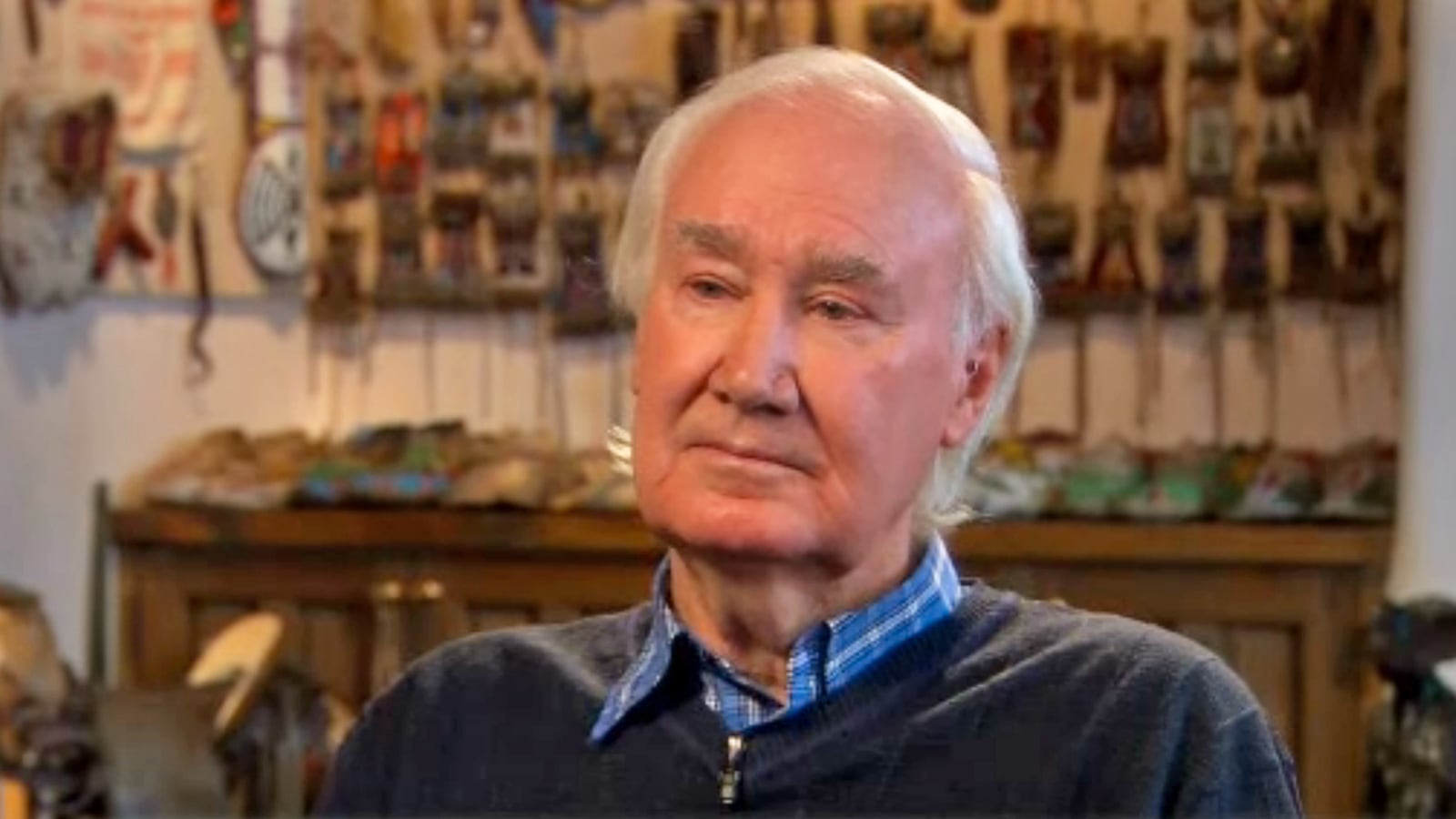Late last night, I got an email from Forrest Fenn, a person of interest in what the feds have called the biggest grave-robbing case of all-time. He claimed the feds had dropped the case against him, and that the lead investigator had apologized. “After three and a half years and a lot of money out of my pocket, it is over,” Fenn wrote. “At least now I can smile inside again.”

But he did more than just smile inside. He went on The Today Show, receiving a good morning kiss from Matt Lauer and an NBC correspondent in Santa Fe. It was pre-taped, fortunately, since it aired before dawn Santa Fe time, and Fenn has told me he sleeps in the nude. He has told me a lot of things over the last year, most of them charming, some of them scary, all of them interesting. One never feels sure if what he’s saying is the true, part true, or wholesale lie.
Last summer I learned that Fenn had hidden more than a million dollars worth’ of his own gold and ancient artifacts, and self-published a poem with nine clues, which he says will lead readers to the bounty. He called the poem, and the memoir that accompanied it, “The Thrill of the Chase”—and I fled New York for the southwest in search of the same.
I spent the better part of a week with the white-haired retiree, as he sipped buttermilk and tried to avoid dropping hints about where he left the treasure. He didn’t exactly succeed on that front, and for the first time since a federal raid of his home in 2009, he spoke at length about the origins of his epic collection and bizarre plan to shove himself into the historical record. We even went artifact hunting together.
Afterwards I joined the search for his treasure, criss-crossing the surrounding mountains with a group of forty-year-olds from the Midwest, even as the feds continued to dig into the legality of Fenn’s collection. The published story was a hit with readers, but I always expected more than that: I figured the treasure was destined to join the pantheon of finable millions. It seems like it’s on its way.
But one can never be sure with Fenn. Take the claim that the feds have closed their case against him. In fact, both the FBI and Bureau of Land Management still consider the case open, according to a former senior government agent in the southwest who spoke to contacts at both agencies. The agencies themselves say they won’t comment for the same reason: it’s an open case. Maybe Fenn knows better, maybe not.
The only thing I feel sure about—based on my time with Fenn, a review of federal documents and decades of Fenn’s own writing, some of it unpublished, and more than a dozen interviews—is that the treasure is real, and it’s still out there.
I just don’t know where.
Do you? Fenn says all you need to know is in the poem below. If you have ideas on how to read it, we’d love to hear from you. If you have questions for me, I’d love to hear those too, and I’ll be answering in the comments section, as well as sharing all the material that didn’t make it into the story. Just ask. Fenn says he hopes the treasure isn’t found until long after he’s dead. I hope otherwise—and I bet you do too.
As I have gone alone in there And with my treasures bold, I can keep my secret where, And hint of riches new and old.
Begin it where warm waters haltAnd take it in the canyon down,Not far, but too far to walk.Put in below the home of Brown.
From there it’s no place for the meek, The end is ever drawing nigh; There’ll be no paddle up your creek, Just heavy loads and water high.
If you’ve been wise and found the blaze, Look quickly down, your quest to cease, But tarry scant with marvel gaze, Just take the chest and go in peace.
So why is it that I must go And leave my trove for all to seek? The answers I already know, I’ve done it tired, and now I’m weak.
So hear me all and listen good, Your effort will be worth the cold. If you are brave and in the wood I give you title to the gold.






